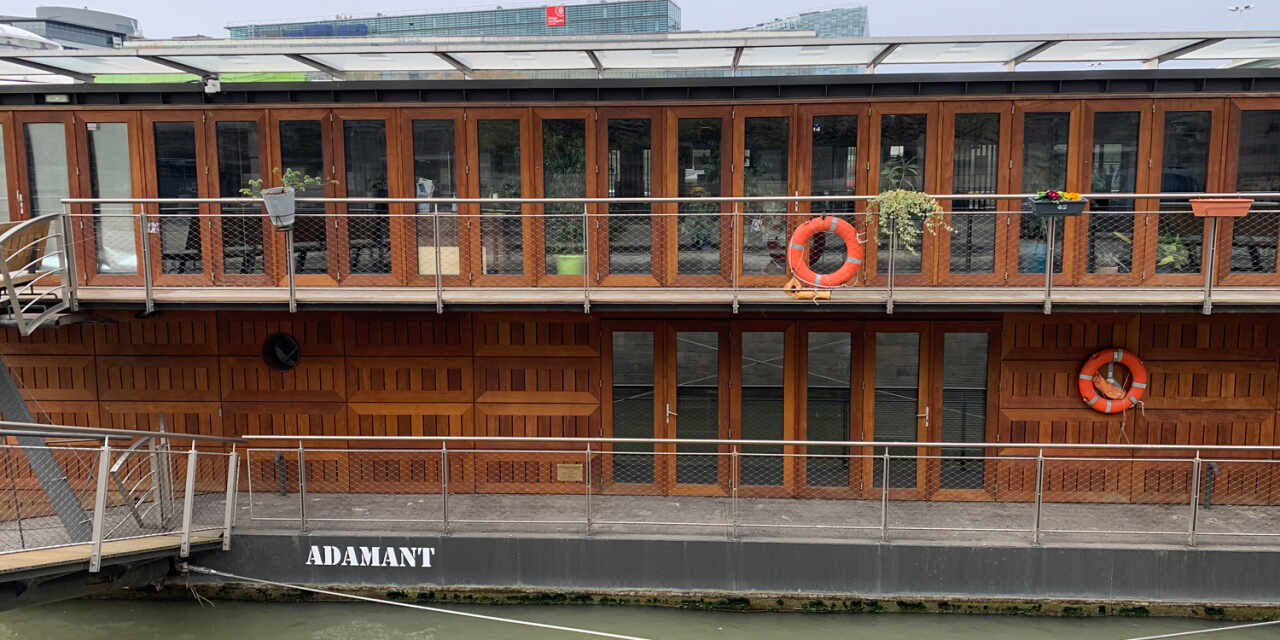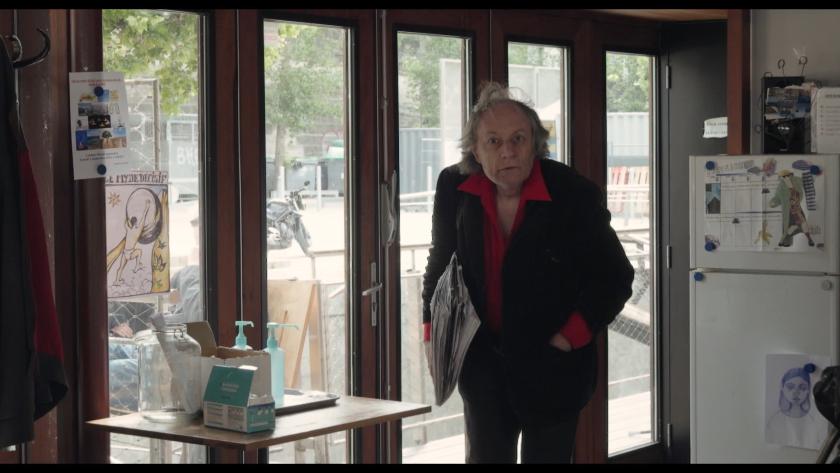On the Adamant is an endearing documentary by the French director Nicolas Philibert, best known here for his 2003 film, Être et Avoir, a portrait of a single-room school in the Auvergne.
This time around, Philbert has placed his camera on the Adamant, a purpose-built barge permanently moored on the Seine in Paris. It’s a drop in centre for city dwellers battling with mental illness – a place where sessions of art therapy, communal cooking and mediated group discussions help troubled people from falling further into despair.
Philbert’s style is to eschew narration or captions, preferring the audience to get to know the characters who come to the boat without introduction or explanation. We meet François first, who gives a heart-felt rendition of the ‘70s hit, The Human Bomb. The song’s lyrics about alienation, a broken heart and an easily triggered temper obviously resonate with François.
We meet another regular patient who loves to dance and is frustrated that despite the co-operative ethos, she can’t run her own session for others suffering with their mental health. Patients question the film crew about their equipment. There's an acknowledgement that their presence is giving them a chance to show the world how they live and who they are. Philibert isn’t that interested in the motivations or identities of the psychiatrists, therapists and social workers who keep the Adamant afloat, preferring to concentrate his gaze on the individuals who find sanctuary on board the barge. There are real charmers among them, including Frederic (main picture), who writes and delivers songs on the fly and compares himself with Jim Morrison and Vincent van Gogh.  We are not given case histories or diagnoses but it’s obvious that some of the regulars have learning disabilities and/or autism while others have experienced trauma or emotional abuse that have led to their battles with mental illness. These are fragile people for whom the Adamant (pictured above) offers support, validation and a refuge.
We are not given case histories or diagnoses but it’s obvious that some of the regulars have learning disabilities and/or autism while others have experienced trauma or emotional abuse that have led to their battles with mental illness. These are fragile people for whom the Adamant (pictured above) offers support, validation and a refuge.
Following in the observational spirit of directors like Frederick Wiseman, Agnès Varda and the Maysles brothers, On the Adamant steers clear of making the barge’s regulars into objects of pity or freakish fascination. Filmed over a considerable period, we see the seasons change and visitors to the boat fluctuate in mood.
It’s not until the very end of the documentary that we learn how the Adamant is funded. A caption tells us it opened in 2010 and is overseen by a psychiatric hospital who provide the staff and facilities. Cuts mean that the Adamant’s future is precarious. Philibert’s film, which won the top prize at the Berlin film festival, should help ensure its survival.
The veteran documentarian's meditative approach to film-making, relying purely on observation, can be a little frustrating journalistically – I wanted to know how the Adamant dealt with difficult service users, the ones struggling with unmanageable addictions or aggressive behaviour directed at themselves or others – but apart from that caveat, this is a warm, gently funny and very moving documentary. On the Adamant is the first in a trilogy of documentaries Philibert has planned about the treatment of mental health patients; I look forward to the next two films.















Add comment